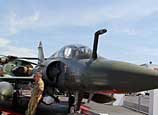
BEIJING, June 18 (ChinaMil) -- With the recent on-going fermentation of the "PRISM" incident, the United States, which has always put on an image of "freedom defender", has instantly turned out to be a "bad example” of cyberspace freedom violator, perpetrating such acts as eavesdropping, stealing secrets, hacking attacks, and what not. Given those self-righteous accusations that the U.S. has made in recent years against cyber threats posed by other countries, it makes people cannot help wondering how many sets of standards that the U.S. holds in the cyber world.
Example 1 of the U.S. multiple standards: Online privacy is a privilege enjoyed by the American people, while that of the people of other countries is unimportant.
With the "PRISM" incident brought to light, the first to voice strong anger was the American people. It should be known that right to privacy is sacrosanct in the minds of American people. It embodies "the value of freedom". Now that the U.S. Government has authorized its intelligence agencies to implement network surveillance and infringe on people's privacy, how can people not get angry? As an emergency measure to quench the fire of anger, Barack Obama, U.S. president, claimed that although the surveillance program does exist, it "does not apply to U.S. citizens or those people living in the U.S." The implication here is that the privacy right of the American people is treated with due respect, while that of the people of other countries is not as important.
Example 2 of the multiple standards: The U.S.'s implementation of network surveillance is for "anti-terrorism", but the network surveillance implemented by other countries is for ulterior motives.
Keith Alexander, director of the U.S. National Security Agency (NSA), testified at the congressional hearing on June 12 that since the implementation of such surveillance programs, dozens of terrorist activities have been thwarted. There is no ground to blame it if the programs serve to protect the national security against terrorist forces. However, a few years ago, when the U.S. Google company withdrew from the Mainland China on the grounds of "unwillingness to be subject to review", Hillary Clinton, the U.S. Secretary of State at that time, seemed to have forgotten about their own programs of network surveillance when she unleashed vehement criticism against China, making so much effort to present the U.S. as a protector of "internet freedom".
Example 3 of the multiple standards: The United States is the victim of cyber-attacks; for its own security, it can wage cyber-attacks on other countries.
Earlier this year when an information security company in the United States released a report to accuse China of launching cyber-attacks on the U.S., a number of U.S. senior officials then took turns to play up the exaggeration of Chinese "cyber threats". Edward Snowden, the whistle blower for the "PRISM" incident, revealed the truth to the media that the U.S. had been carrying out cyber-attacks on China for many years. He also provided some data to the media that detailed the NSA hackers’ attacks on Hong Kong and the Mainland China, including the IP addresses attacked and the specific dates of those attacks. It is quite clear to anyone with meager common sense as to which country, China or the U.S., has greater cyber strength. As a country with the top-one cyber strength, the U.S. is touting itself as a "victim" of cyber-attacks, while launching its cyber-attacks on those countries with obvious disadvantage. There is no knowing what logic it is following here.
The Unites States holds the absolutely advantageous position and hegemony in the field of cyberspace, but this does not mean that the U.S. can thus implement "multiple standards". To establish a positive cyber world order in global scale, the U.S. should redress its mindset and discuss with other countries of the world in order to institute a fairer and equitable set of cyber rules.
By Lv Jinghua with the Academy of Military Sciences (AMS) of the Chinese People's Liberation Army
















 Controversial audition for 'rich blind date' -- being pretty is just not enough
Controversial audition for 'rich blind date' -- being pretty is just not enough


![]()
